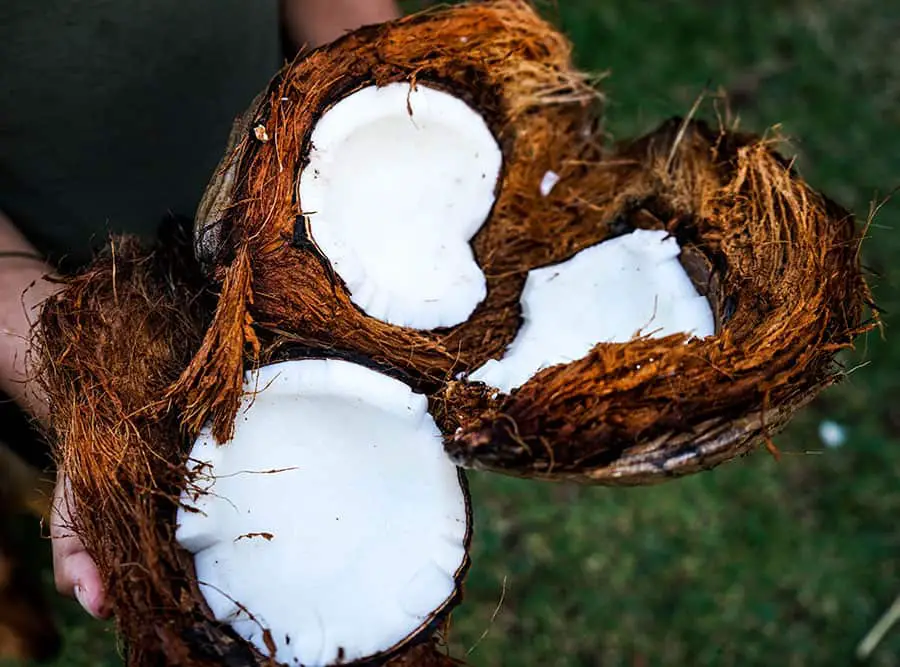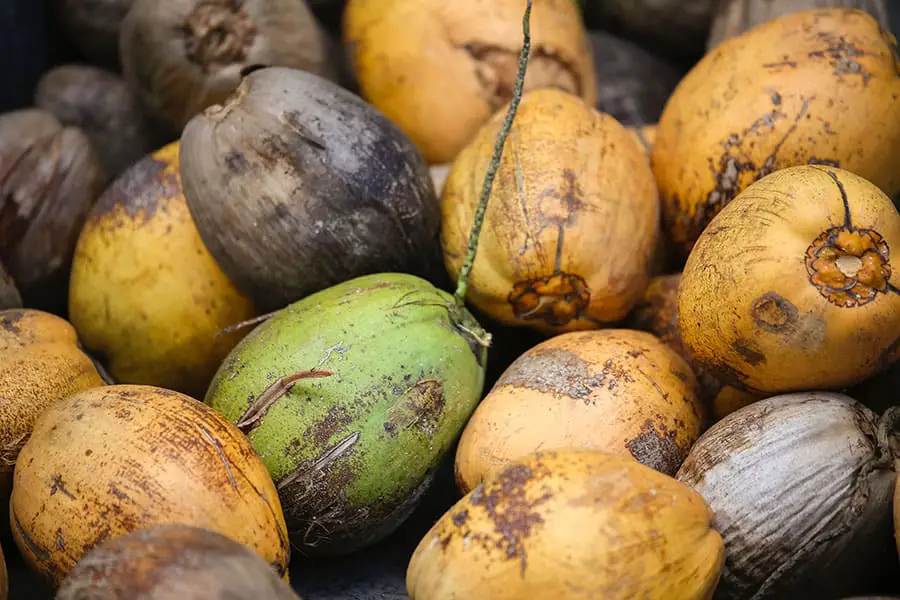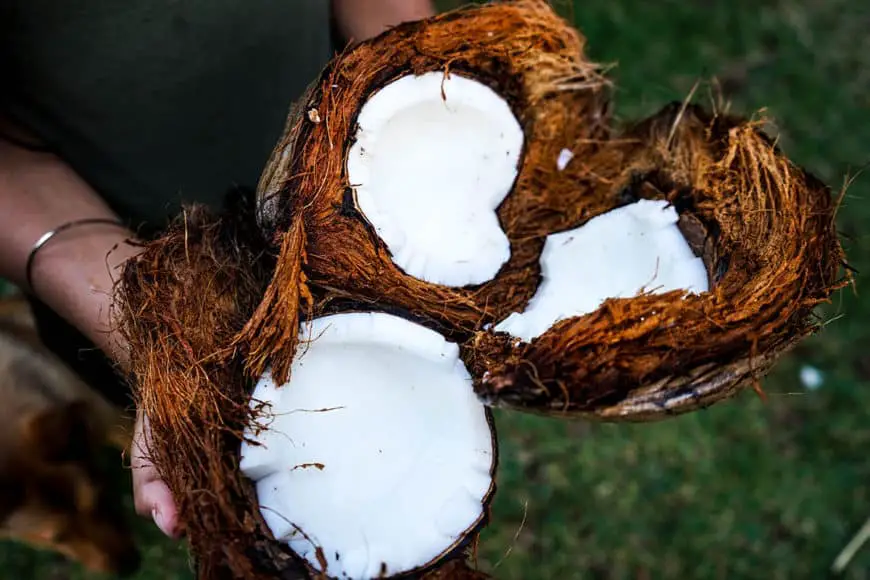
Ever thought about tossing a spoonful of coconut oil into your morning coffee? This trendy drink, often linked to bulletproof coffee, has taken off among keto fans, health enthusiasts, and coffee lovers looking for a creamy, low-sugar alternative to traditional creamers.
By blending coconut oil’s healthy fats with coffee’s caffeine kick, you get a frothy, energizing brew that promises more than just a wake-up call. But does it really live up to the hype?
I’ve dug into the science, scoured online chatter, and tested the claims to bring you the full scoop on coconut oil coffee—complete with a foolproof recipe and tips to make it work for you.
What Is Coconut Oil Coffee?
Coconut oil coffee is exactly what it sounds like: a cup of coffee blended with coconut oil to create a creamy, frothy drink. Popularized by bulletproof coffee, this combo swaps traditional creamers and sugars for healthy fats, promising sustained energy and other health perks.
It’s a favorite among keto dieters, intermittent fasters, and anyone looking to cut carbs without sacrificing flavor. But does it really deliver? Let’s break down the science, benefits, and how to make it at home.
Why Add Coconut Oil to Coffee?
Coconut oil contains medium-chain triglycerides (MCTs), fats that your body burns quickly for energy rather than storing as fat. About 65% of coconut oil is MCTs, like lauric acid, which some claim supports immunity and metabolism. Pairing these fats with coffee’s caffeine creates a drink that keeps you alert and full longer than sugary lattes.
There are those that praise the creamy texture and mental clarity, with one calling it “an energy drink for my brain” without the jitters. Others mention better digestion and workout performance. Sounds promising, but let’s see what the evidence says.
Health Benefits of Coconut Oil in Coffee
Coconut oil in coffee isn’t just a trendy twist—it’s packed with potential health perks that have people buzzing. From boosting energy to curbing hunger, the medium-chain triglycerides (MCTs) in coconut oil, combined with coffee’s caffeine, promise to supercharge your morning. But not all claims hold up under scrutiny. Let’s dig into the science behind the benefits, separate fact from hype, and see what this combo can really do for you.
1. Boosts Energy
MCTs are absorbed quickly and converted into ketones, a fuel source for your brain and body. Combined with caffeine, this can keep you energized, especially if you skip breakfast. Studies confirm MCTs provide fast energy, making this a great pre-workout drink.
2. Controls Appetite
MCTs produce ketones, which may reduce hunger by affecting hormones like ghrelin. Caffeine also suppresses appetite, so you might snack less. Some human studies support this, but results vary by individual.
3. Supports Metabolism
Research suggests MCTs can increase calorie burn by about 5% (100-120 calories daily for an average person), but this is with pure MCT oil, not coconut oil. Claims of burning 200 extra calories, as mentioned in your article, lack evidence and are overstated.
4. Strengthens Immunity
Lauric acid in coconut oil has antimicrobial properties, fighting bacteria and viruses in lab studies. However, there’s no strong evidence that drinking coconut oil in coffee significantly boosts your immune system. Your claim about lauric and caprylic acids is partially correct but overstates human benefits without clinical data.
A Word of Caution
Coconut oil is 90% saturated fat, which can raise both “good” HDL and “bad” LDL cholesterol. The American Heart Association recommends limiting intake to 1-2 tablespoons daily to avoid heart health risks. Overdoing it can also lead to weight gain, as each tablespoon packs 120 calories.
| Benefit | Evidence Level | Notes |
|---|---|---|
| Energy Boost | Strong | MCTs provide quick energy. |
| Appetite Control | Moderate | May reduce hunger, varies by person. |
| Metabolism | Weak | Small calorie burn, less than claimed. |
| Immunity | Weak | Lab-based, no strong human data. |
Unrefined vs. Refined Coconut Oil: Which Is Best?
Choosing the right coconut oil for your coffee can make or break the experience. With unrefined and refined options on the shelves, it’s easy to wonder which one suits your morning brew best. Each type has its own flavor, nutrient profile, and vibe, and picking the wrong one might leave your coffee flat or overpowering. Let’s break down the differences, from taste to processing, so you can decide which coconut oil deserves a spot in your cup.
Unrefined (Virgin) Coconut Oil
Made from fresh coconut meat, often cold-pressed, this oil retains a mild coconut flavor and more nutrients, like antioxidants. It’s ideal for coffee, adding a tropical note. Smoke point: 350°F.
Refined Coconut Oil
Produced from dried coconut (copra), refined oil is processed with heat and bleaching (no actual bleach), resulting in a neutral taste and fewer nutrients. Its higher smoke point (400-450°F) suits cooking, but it’s less flavorful for coffee.
Recommendation: Choose unrefined coconut oil for coffee. The coconut flavor complements bold roasts, and you get a nutrient boost. Opt for organic, cold-pressed versions in glass jars for quality.
How to Make Coconut Oil Coffee

Ready to whip up a creamy, energizing cup of coconut oil coffee? This simple recipe transforms your daily brew into a frothy, keto-friendly drink that’s as delicious as it is satisfying. Whether you’re a bulletproof coffee newbie or just looking to switch up your morning routine, we’ve got you covered with an easy-to-follow method, plus tips to get that perfect texture without the greasy residue. Let’s get blending!
Ingredients
- 1 cup freshly brewed coffee (medium or dark roast)
- 1 tablespoon unrefined coconut oil
- 1 tablespoon grass-fed butter (optional, for richer texture)
- Sweetener like honey or stevia (optional)
Instructions
- Brew your coffee using quality beans for the best flavor.
- Pour it into a blender with the coconut oil and butter (if using).
- Blend on high for 20-30 seconds until frothy and light brown.
- Pour into a mug, add sweetener if desired, and enjoy.
Tips
- Start with 1 tablespoon of coconut oil to test digestive tolerance. Too much can cause stomach upset or a laxative effect, as you noted.
- No blender? A hand frother works, but blending creates the smoothest texture.
- Avoid stirring oil directly into coffee—it leaves a greasy film.
Who Should Try Coconut Oil Coffee?
This drink suits keto dieters, intermittent fasters, or anyone wanting a low-sugar creamer alternative. It’s a smart swap for high-carb lattes, cutting sugar while adding healthy fats. However, if you’re watching calories or have high cholesterol, use it sparingly—240 calories from two tablespoons add up. Those with heart concerns should consult a doctor due to the saturated fat content.
Is Coconut Oil Coffee Worth It?
Coconut oil coffee delivers on some fronts: it’s a tasty, energizing drink that can curb hunger and fuel your morning, especially for keto or fasting lifestyles. But it’s not a health miracle. The metabolism and immunity benefits are overstated, and the high saturated fat content calls for moderation. If you’re curious, grab some unrefined coconut oil, blend it up, and see how it feels. It could become your go-to coffee ritual or just a fun experiment.

